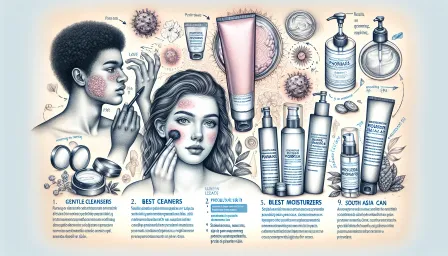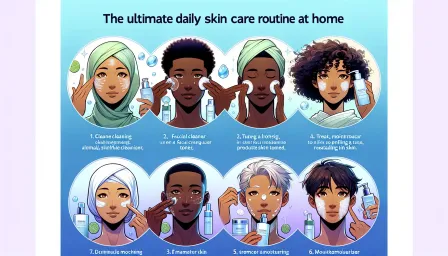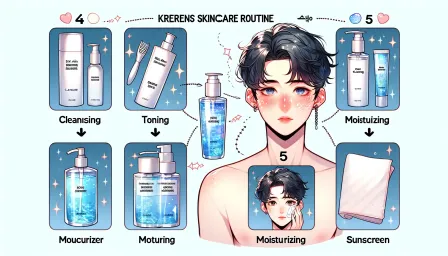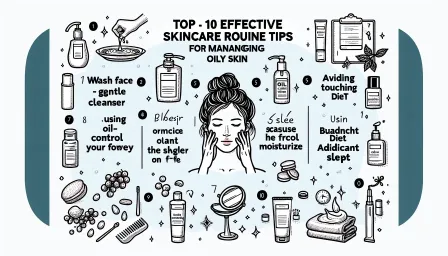Top 10 Skincare Routines for Dry Skin with Acne
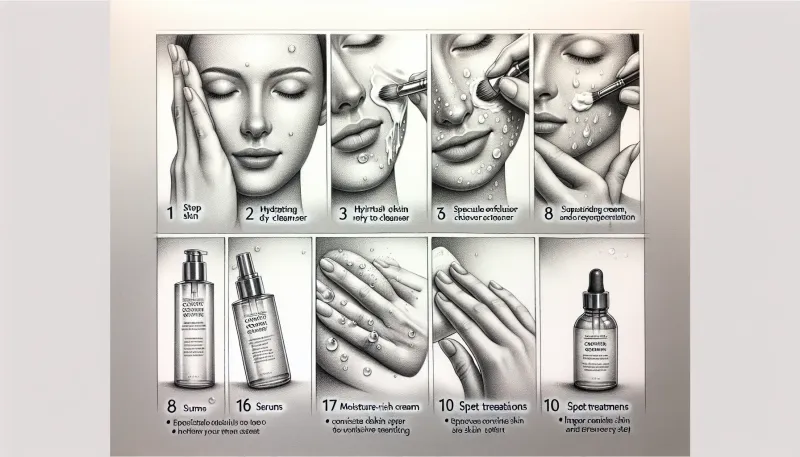
Discover the top 10 skincare routines tailored for dry skin with acne, addressing your specific challenges with expert tips and reliable solutions.
Managing dry skin with acne can be particularly challenging. Using the wrong products or neglecting hydration can exacerbate both conditions. This guide will provide the top 10 skincare routines specifically designed for dry skin plagued by acne. These routines will help maintain moisture while effectively combating acne, ensuring your skin looks and feels its best.
1. Gentle Cleansing
One of the most important steps in any skincare routine is cleansing. When you have dry skin with acne, it’s crucial to choose a gentle, hydrating cleanser that cleans without stripping the skin of its natural moisture. Look for ingredients like glycerin, hyaluronic acid, and ceramides. Avoid sulfates and harsh surfactants that can dry out your skin further.
2. Exfoliate Wisely
Exfoliation is necessary to remove dead skin cells, but overdoing it can aggravate dryness and acne. Opt for a gentle exfoliant that won't damage your skin barrier. Chemical exfoliants like lactic acid or mandelic acid can be very effective without being too harsh. Exfoliate no more than 2-3 times a week.
3. Hydrating Toners
After cleansing, a hydrating toner can help restore your skin's pH balance while adding a layer of hydration. Look for toners with hydrating ingredients like aloe vera, cucumber extract, and rose water. These ingredients can soothe and hydrate your skin without clogging your pores.
4. Moisturize Regularly
Moisturizing is a cornerstone of caring for dry skin with acne. Choose a moisturizer that is non-comedogenic, meaning it won’t clog your pores. Ingredients like urea, hyaluronic acid, and ceramides can provide intense hydration and help repair the skin barrier. Be sure to apply your moisturizer while your skin is still damp to lock in moisture.
5. Use Non-Comedogenic Products
It's vital to select skincare products labeled as non-comedogenic to avoid clogging your pores. This includes makeup, sunscreens, and even hair products. Read labels carefully and consider products with fewer ingredients, as they are less likely to irritate or cause breakouts.
6. Spot Treatments
Spot treatments with ingredients like benzoyl peroxide or salicylic acid can be very effective for treating individual blemishes. However, these ingredients can be drying, so use them sparingly and only on the affected areas. Ensure the rest of your skincare routine compensates with ample hydration.
7. Hydrating Serums
Incorporating a hydrating serum into your routine can be a game-changer. Serums with hyaluronic acid, niacinamide, or peptides provide deep hydration and can improve the overall texture and resilience of your skin. Apply serum after your toner and before your moisturizer.
8. Sun Protection
Sunscreen is non-negotiable in any skincare routine, especially if you are treating acne, as many acne treatments make skin more susceptible to UV damage. Choose a sunscreen that is hydrating and non-comedogenic. Look for sunscreens with added moisturizers or aloe vera to provide extra hydration.
9. Hydrating Masks
Treat your skin to a hydrating mask once or twice a week. Masks with ingredients like honey, aloe vera, and hyaluronic acid can provide an additional moisture boost. Avoid clay masks that can strip your skin of essential oils.
10. Consistency is Key
Consistency in your skincare routine is vital. Changing products frequently can disrupt your skin and worsen acne. Stick to a set routine for at least a month to see meaningful results. If you’re not seeing improvement, consider consulting with a dermatologist.
Conclusion
Managing dry skin with acne may require a bit more attention and care, but by following these reliable and effective skincare routines, you can achieve balanced, hydrated, and clear skin. Remember to choose gentle, non-comedogenic products, hydrate your skin adequately, and be consistent in your routine. If problems persist, professional guidance from a dermatologist may be necessary to tailor treatments to your skin's unique needs.




